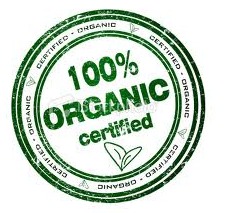Nowadays we’re very conscious about the food we eat and where it comes from. If you’re an avid produce consumer you’ll be familiar with terms such as “Non-GMO,” “Certified Organic” and “100% organic,” for instance. However, what do these labels really mean for you? What is the real benefit?
The USDA states that the goal of organic foods and organic farming is to “integrate cultural, biological, and mechanical practices that foster cycling of resources, promote ecological balance, and conserve biodiversity.”
So, if you see the “USDA Organic” or “Certified Organic” seal on your food, it must have an ingredients list and the contents should be 95% or more certified organic. What does this mean? We imply that the item is free of synthetic additives like pesticides, chemical fertilizers, and dyes, and must not be processed using industrial solvents, irradiation, or genetic engineering. These specifications have been handed down to the USDA for quality control. The remaining 5% may only be foods or processed with additives on a controlled items list.
“Certified Organic” isn’t the only label you’ll see. Here’s where “100% organic” comes into the fray.
When you see a “100% organic” label on your produce, it means all of the ingredients must meet the guidelines above, or “made with organic,” which means that the ingredients must contain 70% or more organic ingredients, the USDA seal cannot be used anywhere on the package, and the remaining 30% of the ingredients may not be foods or processed with additives on a special exclusion list.
Tell us what you think in the comments below and let us know if you buy organic!



